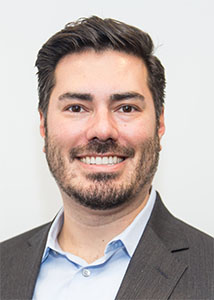Brian Mustanski, PhD
Professor, Medical Social Sciences, Psychiatry & Behavioral Sciences

Research Program
Link
Cancer-Focused Research
Over the last decade a central focus of my work has been conducting translational research on LGBT adolescent health with a major focus on HIV prevention among adolescent MSM. I founded and direct the Northwestern Institute for Sexual and Gender Minority Health and Wellbeing (formally the IMPACT Program), which is a center for translational research on LGBT health and development. I am also the founding co-Director of our NIH-funded Third Coast Center for AIDS Research (CFAR) in Chicago and Co-Director of the NIH-funded Center for Prevention Implementation Methodology for Drug Abuse and HIV (Ce-PIM). My experience leading research on young MSM, HIV, and substance use, and leading large NIH funded projects makes me well positioned to serve as the primary mentor and sponsor for this proposal. Much of my career has involved leading interdisciplinary research that seeks to integrate multilevel perspectives on drivers of health and disparities, including genetic, developmental, psychological, network, and structural factors. My experience in interdisciplinary research provides a strong foundation or me to mentor Dr. Morgan on his research on behavioral and psychological drivers of inflammation among young MSM. In terms of observational research with adolescent MSM, I led the longest longitudinal cohort study of LGBT youth (Project Q2; ages 16-20 at enrollment), co-led an adolescent MSM cohort study focused on the development of a syndemic of health issues (Crew 450; R01DA025548; ages 16-20 at enrollment), and an innovative adolescent extension of the National HIV Behavioral Surveillance Study (ChiGuys funded by CDC; ages 13-18). Together these three cohorts have been hybridized in the context of a large NIDA U01 grant (RADAR; U01DA036939) to create a dynamic dyadic-network cohort study of over 1,000 adolescent and young adult MSM that examines HIV and substance through a multilevel perspective (e.g., host and viral biological characteristics, individual and dyadic behaviors, network and structural factors). I have worked with or known each of Dr. Morganâs co-mentors for many years and I look forward to working with them to provide a rich mentorship experience to help Dr. Morgan achieve his research and training goals.
